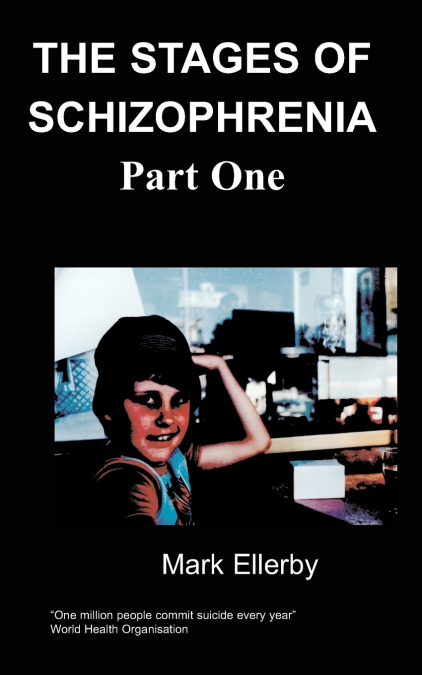
M. Ellerby / MEllerby
By Mark EllerbyISBN: 9781847470973Published: 2007Pages: 143Key Themes: schizophrenia, recovery, self-helpDescriptionIt is often said that schizophrenia cannot be understood unless you have had it yourself. I would not go so far as to say it is unimaginable but the problem of communicating the experience requires an in depth look at a particular case. I think it is possible to communicate it a little more than this first sentence indicates. About the AuthorMy biographical history is very much dominated by schizophrenia which began at age 21. I had just graduated from university and starting a PhD. course in political philosophy. I had to give up my PhD. after a five year struggle with the illness due to a lack of information to hand about what hearing voices actually is Book ExtractAt age 21, life could not be better. I had just graduated from University with a first class degree, had been accepted to study for a doctorate with funding (the academic equivalent of being selected for the Olympic team) and had a research supervisor who was a member of the House of Lords. What could go wrong? Nothing, or so it seemed. Then it happened: Schizophrenia. It was not a sudden shock, more of a gradual onset, although nothing had prepared me for it. Nobody takes you aside at school and says, 'Look you might get a mental illness!' There was no information available to allow a self-diagnosis. I had heard of Schizophrenia, but thought it was a split or dual personality. It was all the more frightening back then as I didn’t know how to help myself. For the first few years, I stayed at university in Southampton; the opposite end of the country and away from home and family. I managed to keep my head above water on my course, as the symptoms were not so bad at the start. I kept hearing people talking about my actions, behaviour and thoughts. Eventually I spent more time thinking about this than my work and had to give it up and go home - just in time. My psychiatrist described my symptoms as particularly severe so they are probably worth recounting. I kept hearing the neighbours banging on the walls trying to play on my nerves (or so I thought). My response was to run not just out of the house, but to get as far away as possible. That meant getting away from everybody. I wandered round the countryside at night trying to avoid towns and villages from which direction I could still hear the banging noise. I had paranoia and auditory hallucinations all mixed together. This however was not the end of the matter. I had other kinds of delusions. I thought I was responsible for all kinds of problems such as wars, crime and disease. The worst such symptom was that I had memories of being the reason why everything from TV programmes to the architecture of buildings had the form and appearances they did. It was like wandering around in my own subconscious. I tried ’ump-teen’ times to commit suicide but was sectioned and taken to hospital. I was in there for more than a year while ’They’; the doctors, tried to find the right drug. The illness never was a continual thing - I had good periods and bad. I was then put on Risperidone and some of the delusional symptoms seemed to improve. I still had other problems, most notably strange thoughts and periodic head pains but I think the doctors must have thought that by then I had gone through the system and come out the other side! I was left to live independently.